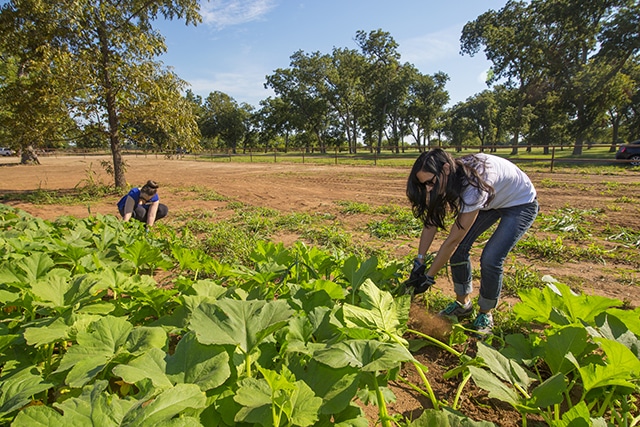 Native American culture, at its roots, is centered on tightly knit communities that work together for the good of the community. Stories from across the continent recount how Native Americans lived off the land, wasting little. Those same principles are being revitalized by Native American Tribes across the country. With more tribes looking to add community activities and concepts of healthier living to their communities, CPN has decided to join in by bringing a Community-Supported Agriculture garden to the area.
Native American culture, at its roots, is centered on tightly knit communities that work together for the good of the community. Stories from across the continent recount how Native Americans lived off the land, wasting little. Those same principles are being revitalized by Native American Tribes across the country. With more tribes looking to add community activities and concepts of healthier living to their communities, CPN has decided to join in by bringing a Community-Supported Agriculture garden to the area.
A CSA is an alternative way for community members to experience what it’s like to maintain a garden and also provide for the community. Individuals working at a CSA work together to build, maintain and share the fruits of their labor.
“It’s all about giving people around here the reason to come together, share and embrace our idea to bring the community together through a wonderful opportunity,” said Dr. Kelli Mosteller, Director of the CPN Cultural Heritage Center and a leading Potawatomi gardener in her own right. “In Native American culture, a community garden isn’t just a project; it’s a way of life.”
The garden will provide the area with fresh fruits and healthy vegetables. It will also provide a place for those interested in giving back to the community, both in a practical and cultural sense. The garden was named “Bodewadmi Widoktadwen Gtegan,” literally meaning “Potawatomi Community Garden.” Dr. Mosteller and CPN Dietitian Torie Fuller MS RD/LD established the garden in order to incorporate ways for the programs they teach to be more engaged with the community.
The duo pooled funding from several grants to help develop and start the garden. Fuller, who used money from the Notah Begay III Foundation Capacity Building Grant and Healthy Heart grants as part of her work as the Tribal dietitian, wanted to partner youth she works with alongside her elder program patients. The garden will serve as an intergenerational tool for elders to teach youth the importance of farming and agriculture.
“Many of the youth have never helped care for a garden,” said Fuller. “You would be surprised that most of them don’t even know where their food comes from. “We’re hoping this might help them try new healthy foods because they helped cultivate the garden.”
Dr. Mosteller, added the CSA in the grant she acquired for the Potawatomi Cultural Mentorship Program. The garden is meant to encourage the youth to become a vital link in preserving knowledge of traditional foods and what they mean to Potawatomi culture.
“We encourage anyone to come out to the garden to help, learn and interact with the community,” said Mosteller.
For more information on the CSA garden at Citizen Potawatomi Nation, please contact Torie Fuller at tfuller@potawatomi.org or Dr. Kelli Mosteller at kelli.mosteller@potawatomi.org.
